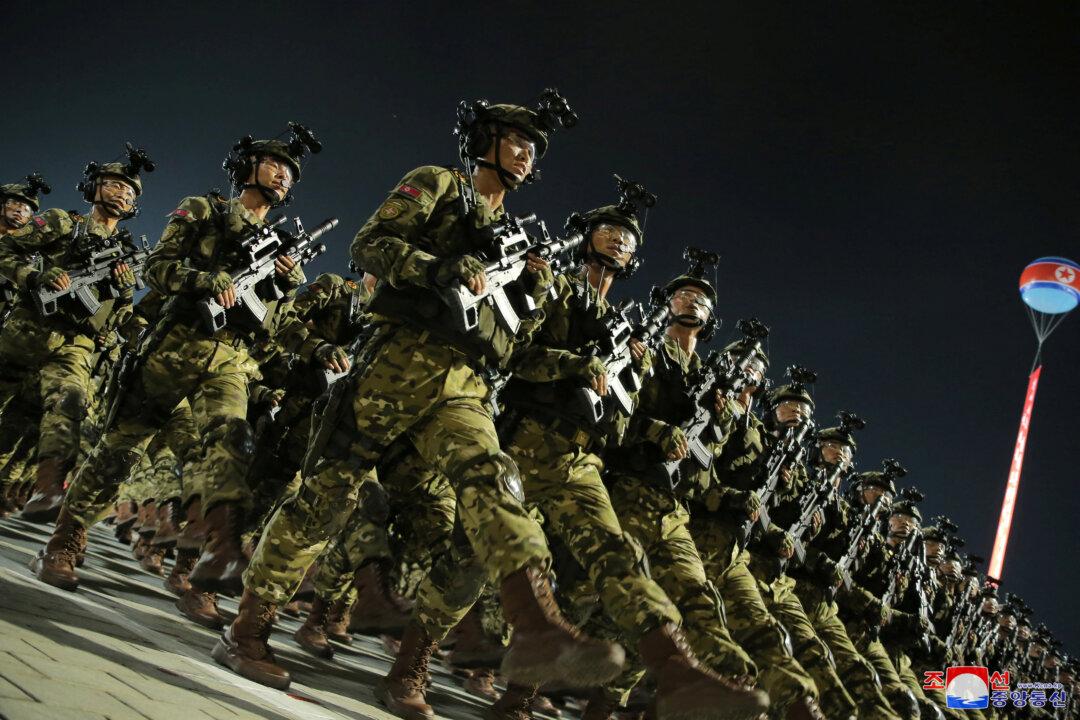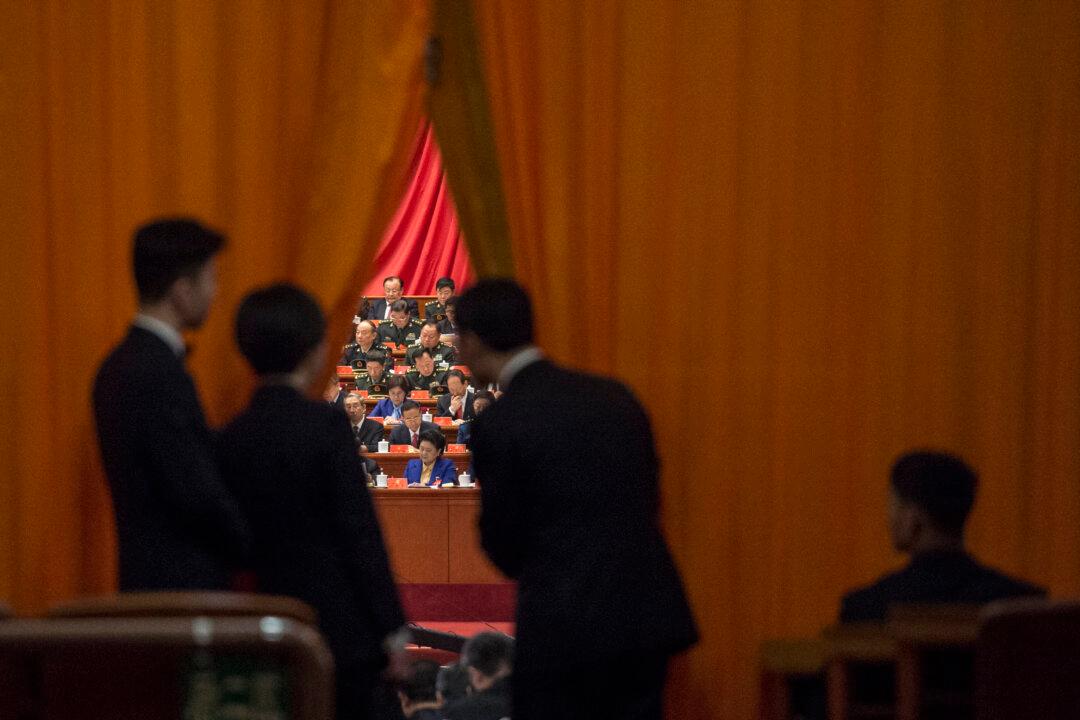Since the eruption of ethnic riots in the Xinjiang Uyghur Autonomous Region of China on July 5, 2009, the Chinese regime has continuously blocked access to the Internet and other communication channels in the area. Xinjiang currently holds the record for the longest Web outage since the invention of the Internet.
Wang Dahao, a local media personality with many years of experience at various newspaper, television, radio, and Internet media outlets, said on his blog that he had spent thousands of yuan to fly to Shenzhen to use the Internet. He noted being deeply disappointed when he went online in Shenzhen.
“There is nothing to see online. Everything that I wanted to see had been deleted,” Wang said.
Wang further expressed lack of hope that the Internet would ever be restored in Xinjiang. He posted online several articles that he had written during the riots in July.
Wang recalled that the Internet connection in Xinjiang was cut off in the early morning of July 6 amid panic. He noted feeling at the time as though the world had abandoned Xinjiang. When the riots began, people were worried about the number of casualties. Later, they became concerned about the delay in the restoration of the Internet connection.
Wang said that many people had asked him when the Internet would work again. He responded, “Never.” He stated that he did not think the regime would restore a monitored connection in the region now that it had a taste of banning the Internet in Xinjiang.
“After Oct. 1 (Chinese National Day), there is the New Year’s Day. After that, there is the Chinese New Year, then Labor Day, then the Communist Party Day, and so on. Since these holidays come around every year, there will always be an excuse [for the Chinese regime] to delay the restoration of the Internet connection,” Wang said.
Some Internet users in China commented that the regime’s decision to keep the Internet connection in Xinjiang cut off months after the riots was quite revealing. If the regime believes its policies are correct, why would it try to hide what is happening?
Wang noted that some Chinese officials believe that social stability trumps all other factors, and that everything should be sacrificed for it.
He said that in some areas of China, authorities close the roads with the excuse of traffic control whenever there is any suspicion of public dissent. As a result, urban traffic gets disrupted, the economy suffers, and social order is disturbed.
Although the effort appears to stabilize society on the surface, it actually creates more chaos, with the damage believed to be much worse than that allegedly caused by separatists.
The Chinese regime’s official media reported that 197 people died and 1,700 people were injured during the riots in Urumuqi on July 5.
Recently, nine alleged riot participants were sentenced to death. Dilshat Reshit, a spokesperson for the World Uyghur Congress, said that the sentencing was politically motivated and abusive of the law, since the defense attorney was afraid to argue on behalf of the Uyghur defendants. Such sentences may not help to ease the local tension. Instead, they may heighten it.
A recent article by the Human Rights Watch noted that a large number of Uyghur men have disappeared in police custody, and the Public Security Ministry refused to disclose their whereabouts to the concerned family members. Ma Zhaoxu, a spokesperson for China’s Ministry of Foreign Affairs, denied the allegation.
Wang Dahao, a local media personality with many years of experience at various newspaper, television, radio, and Internet media outlets, said on his blog that he had spent thousands of yuan to fly to Shenzhen to use the Internet. He noted being deeply disappointed when he went online in Shenzhen.
“There is nothing to see online. Everything that I wanted to see had been deleted,” Wang said.
Wang further expressed lack of hope that the Internet would ever be restored in Xinjiang. He posted online several articles that he had written during the riots in July.
Wang recalled that the Internet connection in Xinjiang was cut off in the early morning of July 6 amid panic. He noted feeling at the time as though the world had abandoned Xinjiang. When the riots began, people were worried about the number of casualties. Later, they became concerned about the delay in the restoration of the Internet connection.
Wang said that many people had asked him when the Internet would work again. He responded, “Never.” He stated that he did not think the regime would restore a monitored connection in the region now that it had a taste of banning the Internet in Xinjiang.
“After Oct. 1 (Chinese National Day), there is the New Year’s Day. After that, there is the Chinese New Year, then Labor Day, then the Communist Party Day, and so on. Since these holidays come around every year, there will always be an excuse [for the Chinese regime] to delay the restoration of the Internet connection,” Wang said.
Some Internet users in China commented that the regime’s decision to keep the Internet connection in Xinjiang cut off months after the riots was quite revealing. If the regime believes its policies are correct, why would it try to hide what is happening?
Wang noted that some Chinese officials believe that social stability trumps all other factors, and that everything should be sacrificed for it.
He said that in some areas of China, authorities close the roads with the excuse of traffic control whenever there is any suspicion of public dissent. As a result, urban traffic gets disrupted, the economy suffers, and social order is disturbed.
Although the effort appears to stabilize society on the surface, it actually creates more chaos, with the damage believed to be much worse than that allegedly caused by separatists.
The Chinese regime’s official media reported that 197 people died and 1,700 people were injured during the riots in Urumuqi on July 5.
Recently, nine alleged riot participants were sentenced to death. Dilshat Reshit, a spokesperson for the World Uyghur Congress, said that the sentencing was politically motivated and abusive of the law, since the defense attorney was afraid to argue on behalf of the Uyghur defendants. Such sentences may not help to ease the local tension. Instead, they may heighten it.
A recent article by the Human Rights Watch noted that a large number of Uyghur men have disappeared in police custody, and the Public Security Ministry refused to disclose their whereabouts to the concerned family members. Ma Zhaoxu, a spokesperson for China’s Ministry of Foreign Affairs, denied the allegation.




